European vocation: Coyotes prospects making up for lost development time by playing across pond
Barrett Hayton, Victor Söderström, Cameron Crotty among those competing abroad
Welcome to the AZ Coyotes Insider newsletter. I generally publish stories four to six times per week (some of them free). By subscribing, you’ll be supporting independent, accountable journalism. Subscribe now so you won’t miss a story.

Mark Bell is spending more time in front of a screen than his eye doctor would recommend. He’s not watching “The Queen’s Gambit,” “Schitt’s Creek” or “The Boys,” however. He is watching hours upon hours of video of the Coyotes’ vast pool of prospects. By the time his daily screen time has concluded, Bell is ready for a break.
“I watch very little TV, if any,” the Coyotes director of player development said. “If I do, it’s for 10 minutes before the kids go to bed and it’s a kids channel. They are 8 (Sloane), 6 (Roman) and 3 (Scarlett), so anything from “Peppa Pig” to “Game Shakers.”
Game shakers is a good way to describe what Bell, player development coach Alex Henry and goaltending development coach Zac Bierk are trying to create from the raw materials each Arizona prospect possesses. That job has become much harder with a global pandemic raging, and still harder with those prospects scattered around the globe to take advantage of whatever playing opportunities still exist in this dystopian reality.
The last time Bell watched a player live was in March when he was in Boston to watch Harvard center John Farinacci, Arizona’s third-round selection (No. 76) in 2019.
“Then the world changed,” Bell said. “I can’t see the kids play live. I can’t talk to them right after the games when everything is fresh. You can’t even go for coffee with them and just talk.
“It’s the face-to-face stuff that has a lot more impact in my mind. When you just watch games on video you just don’t get the full picture. There’s a lot of other things that go into how they're playing: how fast they're changing, their body language, all of these things that I value and every coach values. You can’t see those things. You have to be there to see it.”
Without that advantage, the Coyotes are doing what they can to help their prospects progress along their respective development paths. With the start of the AHL and NHL seasons delayed, Arizona, like many teams, has loaned several of its players to teams in Europe. The Coyotes hope it pays off when the NHL and AHL seasons begin.

“It’s really tough for those guys,” Coyotes GM Bill Armstrong said. “They're over there right now and (the pandemic) is just running rampant. Leagues are getting shut down daily so it’s an awkward time, but you’re hoping that your guys see reps in games and it really pays off in the end. Even if it’s 10 games or 14 games, at least they've got that muscle memory where when training camp starts up again they’ve had that battle; they’ve been in the battle.”
Finding open roster slots for the players isn’t always easy. Arizona tried to find a place for goalie Ivan Prosvetov to play, but the Russian teams that were interested wanted him to stay for the entire season and other goaltending slots were already filled. Prosvetov is currently back home in Russia, dealing with a family illness.
“We don’t call around to ask who’s got space,” Bell said. “We will if we have a relationship with the team, but that’s really a job for the agent to spread their name throughout Europe and see where it goes from there. Once the agent finds some interest, we get in and figure out the loan agreement, figure out the logistics of travel and quarantine and all the little things a player needs to do to get there and play as quickly as possible.
“Really, in this market where everyone wants to go to Europe, it’s just about getting them playing and getting the reps. Obviously, we want them to play in the best leagues against the best competition with the best coaches and the best practices and facilities, but frankly, that doesn’t always happen. First and foremost, we want these guys to play but we feel like where each of these guys has landed has been a great fit.”
For this story, I interviewed prospects at various levels of development to get a range of perspectives. I spoke to Coyotes defenseman Ilya Lyubushkin, who is playing for his old team in the KHL. I spoke to Barrett Hayton, who is not yet a full-time NHL player but has his foot in the door. I spoke to elite defense prospect Victor Söderström, who is playing in Sweden. I spoke to defensive-minded defenseman Cameron Crotty, who is playing in Norway, and I spoke to Farinacci, who elected to stay in North America after Harvard’s season was cancelled and play for the USHL’s Muskegon Lumberjacks.
I had hoped to reach Jan Jeník as well, but recent attempts were unsuccessful. Jenik is having a terrific season with Imatran Ketterä, where he has four goals and seven points in five games.
Barrett Hayton
“I had heard about a couple of guys coming over here and it was definitely something I wanted to do,” said Hayton, who is playing on a line with Coyotes prospect Matias Maccelli (six goals, 15 points in 17 games) for Tampereen Ilves in Finland. “They have a strong, young team that likes to play fast so I thought it was a good fit for me. Luckily, they were looking for a centerman, too, so it worked out perfectly.”
The Finnish league, SM-Liiga, doesn’t require standard dimensions for its rink sizes. Most rinks in the league fall somewhere between the North American and European standards. Hayton likes that fact, he likes his team’s style of play and he said his experience competing in multiple international tournaments (most recently as captain of Canada’s gold-medal winning, 2020 World Junior team) helped prepare him for this jump.
“It’s such a different game on the big ice and it’s still a completely different league so there’s still a lot of changes, but the experience and knowing what to expect was helpful,” he said. “Time and space is a lot different when you have those extra few feet, especially the width. With Ilves, we play a pretty direct North American style game so I'm just taking advantage of that extra space to create a little more.”
The Coyotes are keeping closer tabs on Hayton than most players for obvious reasons. He was their first-round pick in 2018 (No. 5), he plays center where the Coyotes are still deficient in their top six, and he has a strong chance of making a meaningful impact at the NHL level this season, unlike Maccelli, who is likely to remain in Finland for the entire season.

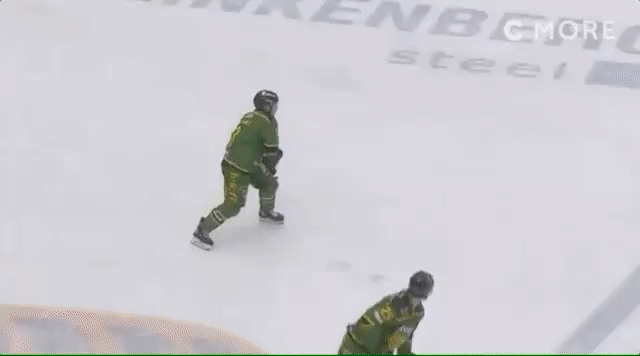
“It’s the ideal situation because he’s a young player, it's the pro league and it's the perfect level for him,” Armstrong said of Hayton. “We’re looking to give him kind of a catapult into training camp and hopefully being a step ahead of everyone else because he has played some hockey.”
Hayton arrived in Finland on Oct. 20 and spent 10 days in quarantine. The quarantine ended on a Saturday morning and he played his first game that night. He has four assists in six games as he adjusts to his apartment in downtown Tampere, a group of teammates who primarily speak Finnish, and Finnish coffee.

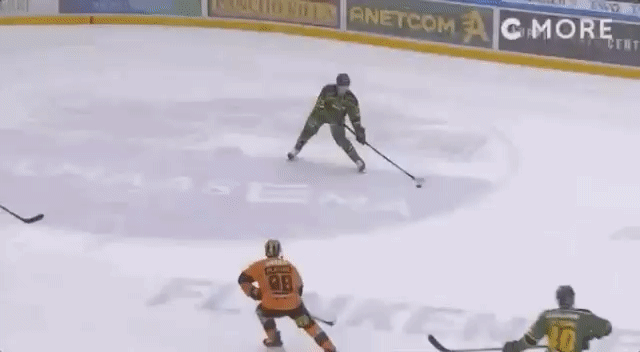
“I like coffee so it’s been good to try some different places,” he said. “There are a couple guys on the team from this city and they have shown me around a bit. Being around them and around European players in their environment is a different cultural experience There is definitely a bit of a language barrier and I’m the only North American player here, but most of the guys speak pretty good English, all of the guys have been great, and this is a big city (about 225,00 residents) so you can pretty much find everything you want.”
Cameron Crotty
Crotty arrived in Norway to play for Sparta Sarpsborg at the end of October. He quarantined until he was allowed to move into his apartment in the city of about 54,000 residents.
“Myself, my agent Murray Koontz and the Coyotes organization were on the same page about wanting to get some playing time somewhere in Scandinavia while the North American hockey world was paused,” said Crotty, who played three season at Boston University before signing a three-year, entry-level deal with the Coyotes in April. “There are many players this year on loan to get some more experience instead of being stuck at home without the option of playing right now. Thankfully, Sparta was in need of right-handed defenders and we were able to work this out.”
While the larger ice surface in Europe presents an adjustment for North American players — both upon their arrival and upon their return to North America — Bell and Henry (who primarily deals with defensemen) thought that the surface would be good for Crotty’s development.
“For a guy that’s more of a meat-and-potatoes defenseman, it's good for him to play a little more of a European style and get lots of puck touches and skating,” Bell said.
BU plays on a hybrid ice surface that is larger than the NHL standard, so Crotty (one assist in three games) said it was less of an adjustment for him than the Norwegian style of play.
“Specifically, we thought that the bigger ice would help give me confidence to make more plays and play a lot more with the puck, and being active across the zones, which is true thus far,” he said. “Working on gapping on the bigger ice is also super beneficial, but all aspects of the game can continue to get better and that’s the goal.
“At the end of the day, it's hockey, so the differences are minor from place to place. It's still a big ice so the physicality is less consistent and there is more room (and emphasis) on puck possession and making plays, but both leagues have great players and professional mindsets so in that regard they are very similar. Both styles are very fun to play.”
While in Norway, Crotty is trying to soak up as much of the culture as the pandemic allows.
“I can tell that everyone is very nice here and many speak passable or even fluent English, which is great for me because I can only communicate in English and French,” he said. “The weather is fairly similar to Ottawa (my home) I would say, but it does get dark early here in November, around 4-5 p.m. Lots of rain, yet also a good sunny contrast. Not too cold just yet.
“I heard the salmon here is world renown; great seafood overall. One difference is the seafood here is not fill(et)ed most of the time. So shrimp, fish come basically untouched instead of in fillet style like home. I found that interesting.”
Like other players, Crotty hopes his experience will serve as a springboard.
“I think coming here will only help the transition to pro in North America,” he said. “Again, it's hockey so playing games here or there is going to help you get better. Habits and player identity stay the same regardless of the place I am playing so in that regard it will not change. I think the best thing is that this will serve as a confidence boost because I am able to get my first pro experience sooner, rather than having to wait until February or whenever the leagues start up.”
Victor Söderström
Not all of the Coyotes prospects have faced an adjustment period when competing for European teams. Defenseman Victor Söderström has played his entire career for Swedish teams and AIK (Allsvenskan) made sense when the Coyotes and Söderström’s agent, J.P. Barry, were looking for a place to play.
”If there was one team I wanted to play for in this league it's this team because I live here during the summer with my girlfriend,” said Söderström, who is playing in the Allsvenskan because SHL teams wanted players stay to for the entire season. “It was the easiest choice.”
When players begin their offseason, the Coyotes development staff gives them a handful of items to work on during the down time. Söderström said he and Henry review those items every week.
”He’s watching all of my games and showing me video clips of things I do good and things they want me to do better,” said Söderström, who has one goal and six points in 12 games. “At the offensive side, they want me to continue creating offense and getting shots through on the net and joining the rush. Defensively, they want me to be strong in the corners, win battles, box out.”
Unfortunately for Söderström, the games have ground to a halt for the time being due to COVID-19.
“In the last week here the death cases per day have been rising a lot,” he said Tuesday. “Today we had 60 to 65 dead and that’s a lot in Sweden. We haven't had those kinds of numbers since April so the government is harder on the country now.
“Two or three weeks ago, 50 people were allowed to be at the rink watching our games. A couple days after that they raised it to 300 and now it’s down to eight people.”
Söderström said the team had another round of tests on Friday (his was negative) and there is hope that the games will resume on Wednesday. Until then, he is living a similar life to many people around the world, and still hoping that he will get the chance to play in North America, whether it is for the Coyotes or the Tucson Roadrunners.
“Once you leave the rink, you buy groceries, you go home and cook and you stay home,” he said. “The government doesn't really want people to be outside so I have been watching the “Hawaii Five-O” series.”
“All summer long, I was thinking about trying to get ready for (Coyotes training) camp and this season so it’s not fun when the situation is like this. This summer, I developed a lot, strength wise. I pushed up a couple steps in my conditioning, too. I can feel that on the ice. By also playing games, maybe I’ll be able to come into camp with a head start.”
Ilya Lyubushkin
The transition to European hockey may have been easier for Ilya Lyubushkin than anyone else. He is playing for Lokomotiv Yaroslavl, the same club with which he spent six-plus seasons before coming to the Coyotes in 2018.
“I practically know all the guys and was with them in 2018,” said Lyubushkin, who did not appear in any postseason games for the Coyotes. “Since mid-March, I have not taken part in (any) games, so I turned to Lokomotiv with such an opportunity to play for this team, before the onset of the training camp in the NHL. And my agents did a good job of it.”
As it is elsewhere, the pandemic is raging in Russia right now, said Lyubushkin, who was not required to quarantine upon his return to his native country.
“The situation with COVID-19 is not very good,” he said. “There are precautions, but as we can see, it does not work very well. Most KHL teams already had this virus. I have already been ill.”
For Lyubushkin, the main thrusts of playing in Yaroslavl were to get him back into games for the first time in more than seven months and to work on his conditioning, but the Coyotes also want him to work on his game with the puck, and work on his defensive details.
There have been no changes to the Coyotes’ blue line thus far this offseason so Lyubushkin still slots in as the team’s seventh defenseman, but he has a couple of advantages over his teammates. He is the only physical presence among the Coyotes’ top seven, and he is right-handed. Jason Demers is the only other right-handed defenseman in the group. With more development and improvement, Lyubushkin could push for a bigger role.
“(The KHL) differs in the speed of the game because there are larger ice sizes, but I already know what the NHL is, so it won't give me any trouble,” Lyubushkin said of the transition back to the NHL that could come as soon as mid-December. “I will be back before training camp starts.”
John Farinacci
Farinacci knows several players who have competed abroad, but even when Harvard’s season was initially delayed, he said Europe was never a consideration for him. He had played a few games with Muskegon in the 2017-18 and 2018-19 seasons. There was a comfort level in the USHL.
With the Ivy League recently cancelling all of it winter sports, Farinacci will likely spend his entire season with Muskegon (he has a goal and four points in three games), and hopefully as a part of Team USA for the World Junior Championship, which begins in the Edmonton bubble on Christmas.
“I knew we weren't going to have a season (at Harvard) until at least January so I figured I would take classes online, go to Muskegon and practice, play games and then if we had a season I would go play for Harvard,” he said Tuesday. “It was a wait-and-see approach with Harvard and we obviously got our answer.
“It’s pretty clichéd but I think just taking it one day at a time is super important. I just got back from practice and we were supposed to play the Dubuque Fighting Saints this weekend and those two games got canceled and now we’re playing NDTP (the U.S. National Team Development Program). You don’t know what to expect, so looking too far into the future and thinking about where you might be or what is going on even a week from now is not good for me mentally. You just control what you can control. As long as I am going to the rink, working hard and getting better at what I can do, everything will come together.”
Farinacci spent eight weeks at Gary Robert’s camp in Toronto this summer, training with the likes of Connor McDavid, James Neal, Josh Anderson, Drake Caggiula and Quinton Byfield. After that, he attended USA World Junior summer camp in Plymouth, Michigan, which is only about 180 miles from Muskegon.
“One thing specifically that I was really trying to work on at Gary Roberts’ camp was explosiveness and my first few steps,” he said. “Playing at a high pace has always been something I wanted to work on, but another big thing is my diet. It was such a long break between games that it gave me an opportunity to see what worked with my diet and what made me feel good.”
Farinacci doesn’t know whether he will attend training camp with the Coyotes. Neither do the Coyotes.
“We’re not sure how big camps will be allowed to be; how many players will be allowed in because of COVID,” Bell said. “Maccelli may stay in Ilves for the entire season and then come over to Tucson when his season ends. Every situation is different and then the overall situation is so fluid that we just don’t know yet.
“We certainly don’t want guys quarantining here if they have a great spot to play in Europe. It’s just a waste of two weeks quite frankly and then if they don’t play here and have to go back, they have to quarantine again. That’s a waste of a month.”
Farinacci said that in spite of the frustration and uncertainty, he is maintaining a positive outlook on the season ahead.
“A pretty big bummer from the whole COVID thing was not having a development camp with the Coyotes this year,” he said. “Last year, I had first-year jitters going into it, not knowing what to expect. This year would have been a great opportunity to go in more comfortably and create relationships with the staff and meet the incoming prospects and get back together with the other draft picks.
“At least I feel like the USHL will be a good situation. It’s on American soil so it’s convenient if I need to see somebody but also the game is very similar to the game I play in the ECAC. It's much more of a grunt-it-out, puck possession, battle league so I’ll make the best of it. That’s all any of us can really do right now.”
Contest
Behind the Mask Hockey Shops are giving away an autographed Oliver Ekman-Larsson stick. BTM founder Randy Exelby asked me to run a contest to determine the winner.
To win the stick you must answer the following five questions and email your answers to craigsmorgan@gmail.com. I will conduct a random drawing and then email the winner with further details. That winner will be able to pick up the stick at any of BTM’s three Valley locations (Scottsdale, Gilbert, Peoria). Good luck!
What were the circumstances behind Randy Exelby’s first NHL start in goal?
For which media outlet did I write my first story on Oliver Ekman-Larsson?
What is Ekman-Larsson’s favorite feature about the new home he just built in Sweden?
How did Ekman-Larsson humorously describe the game-winning goal he scored off an assist from Taylor Hall in Hall’s first game as a Coyote last season in San Jose?
Which NHL record did Ekman-Larsson break in the 2014-15 season (Hint: It was previously held by Nicklas Lidström)?
Follow Craig Morgan on Twitter: @CraigSMorgan





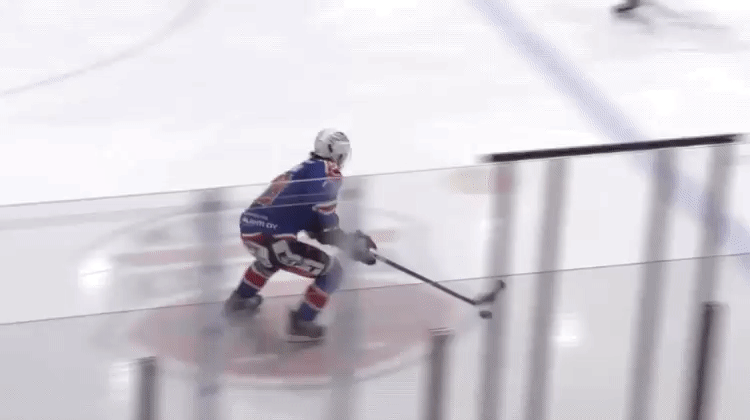
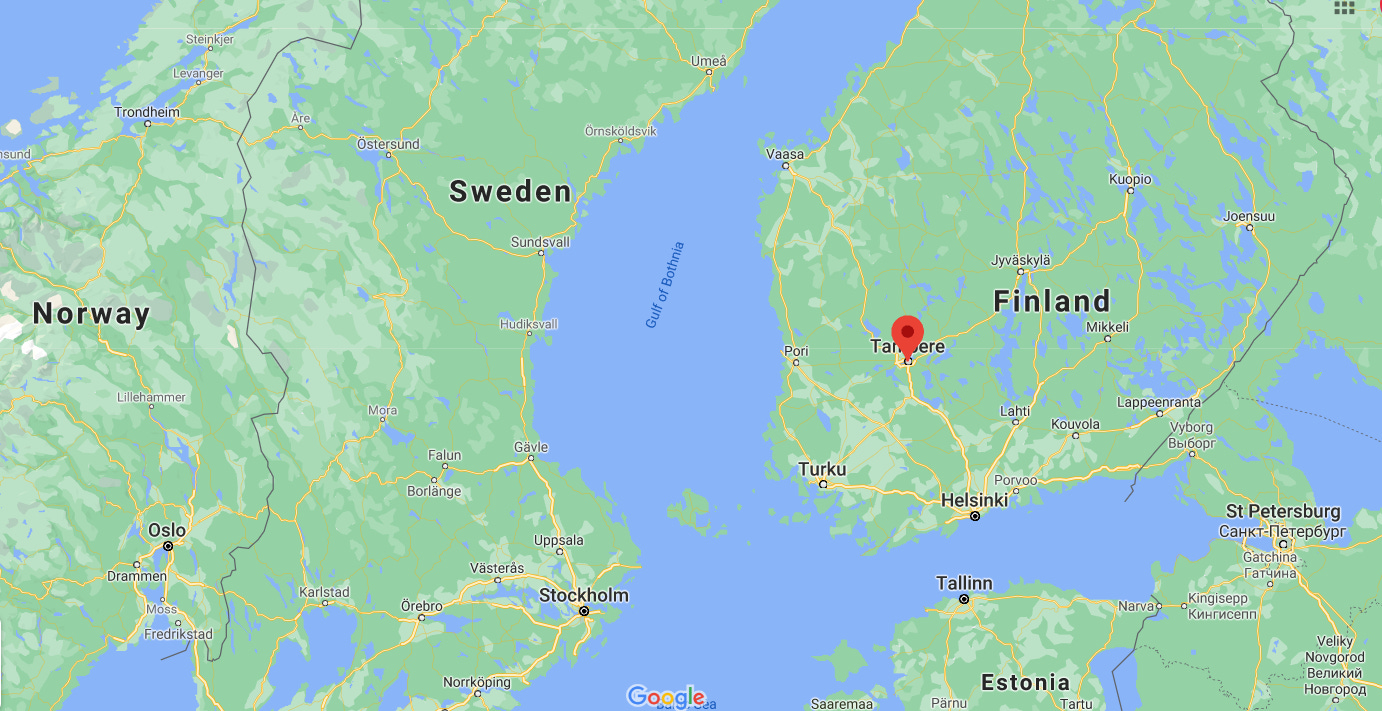
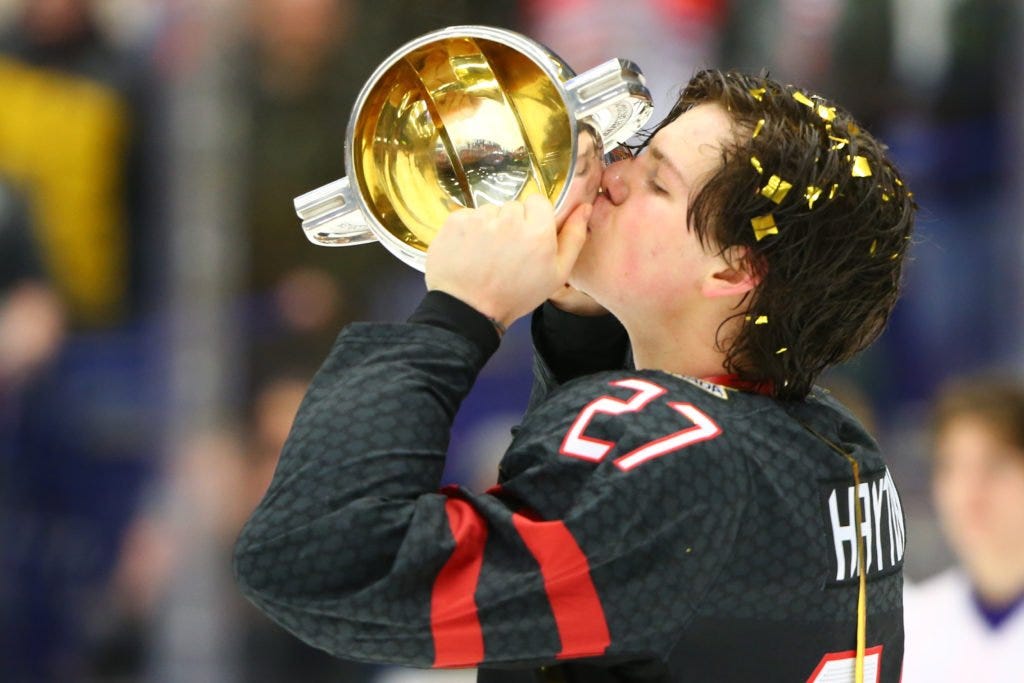

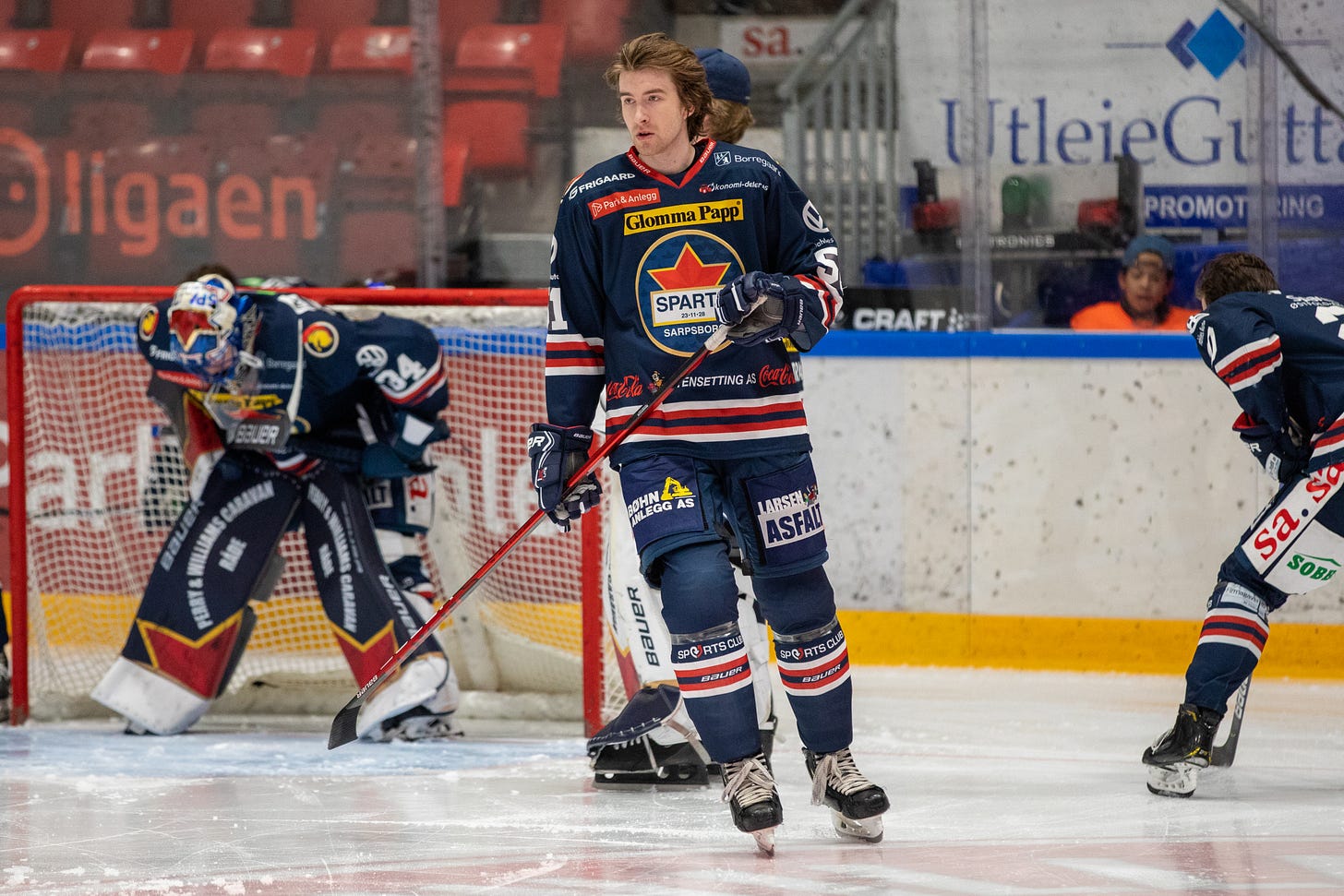
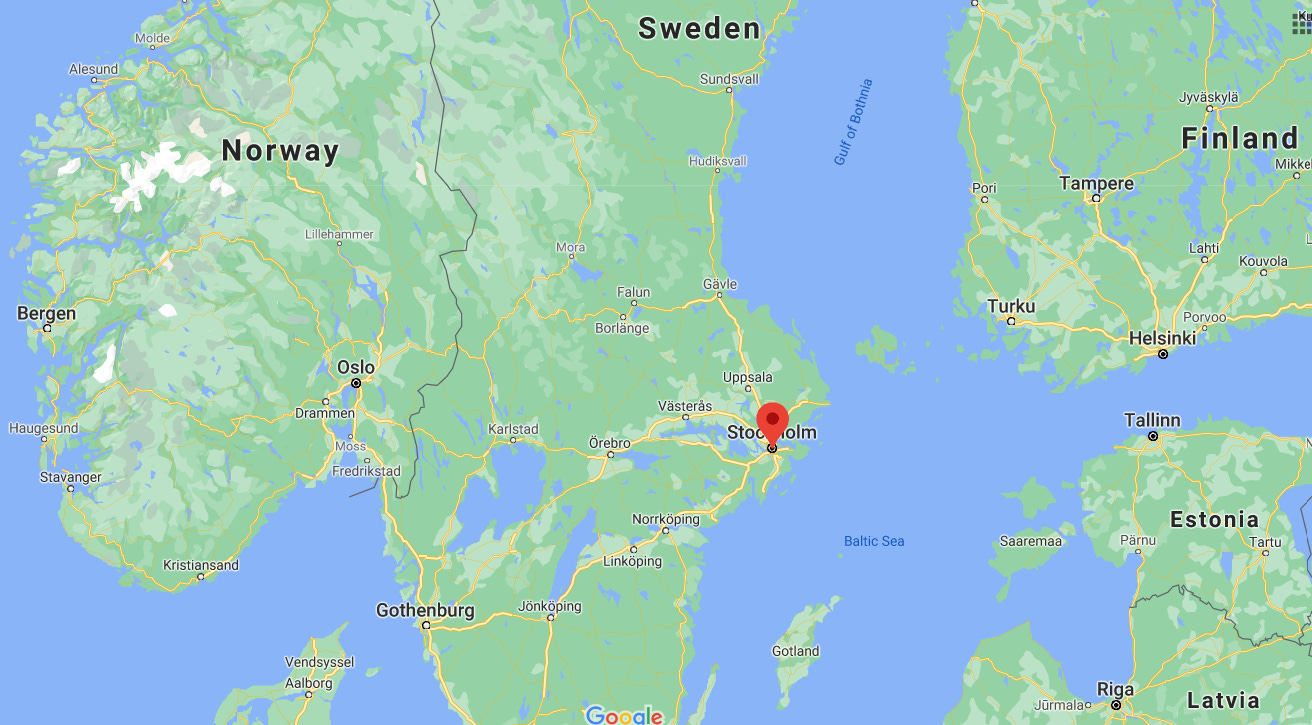

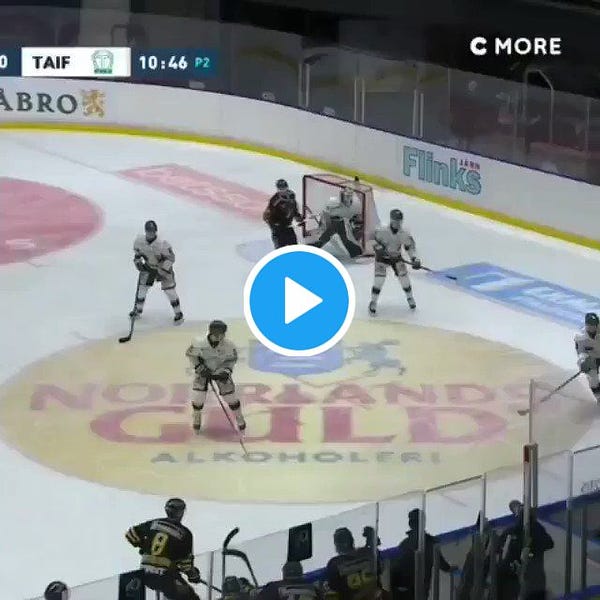


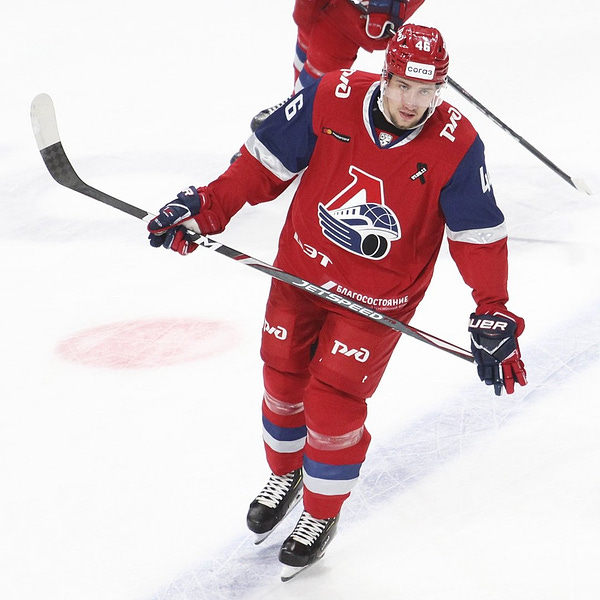
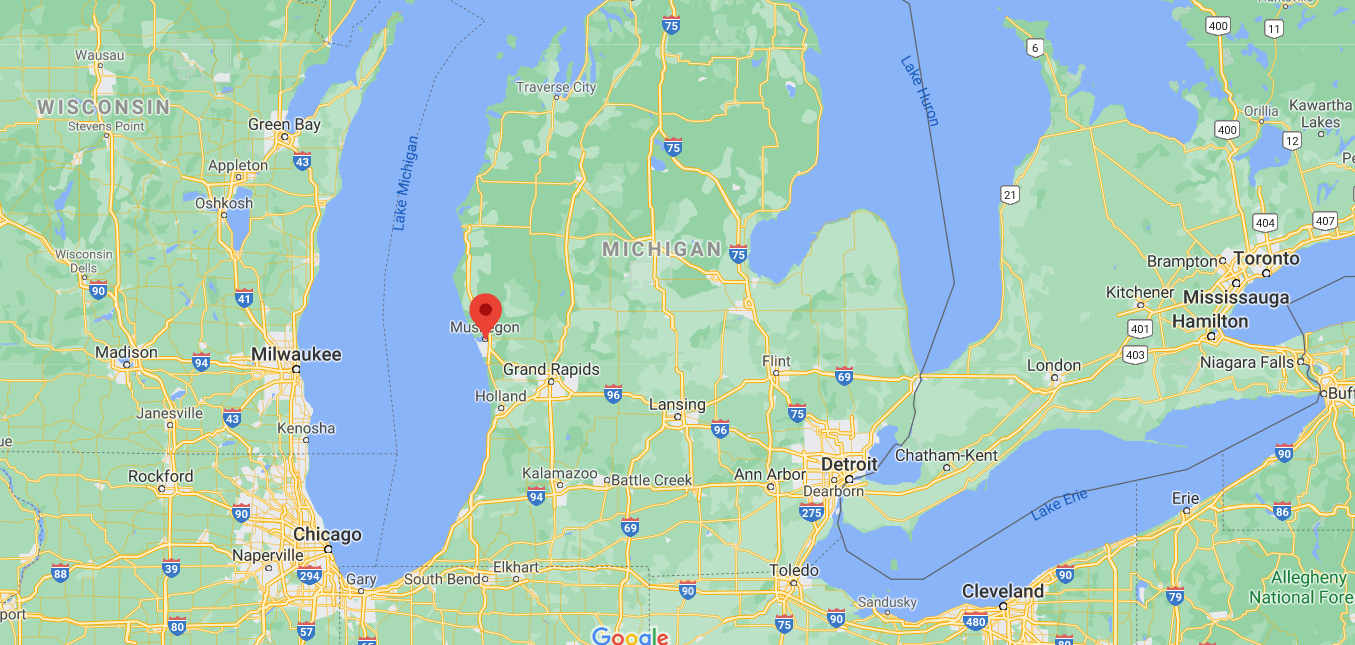
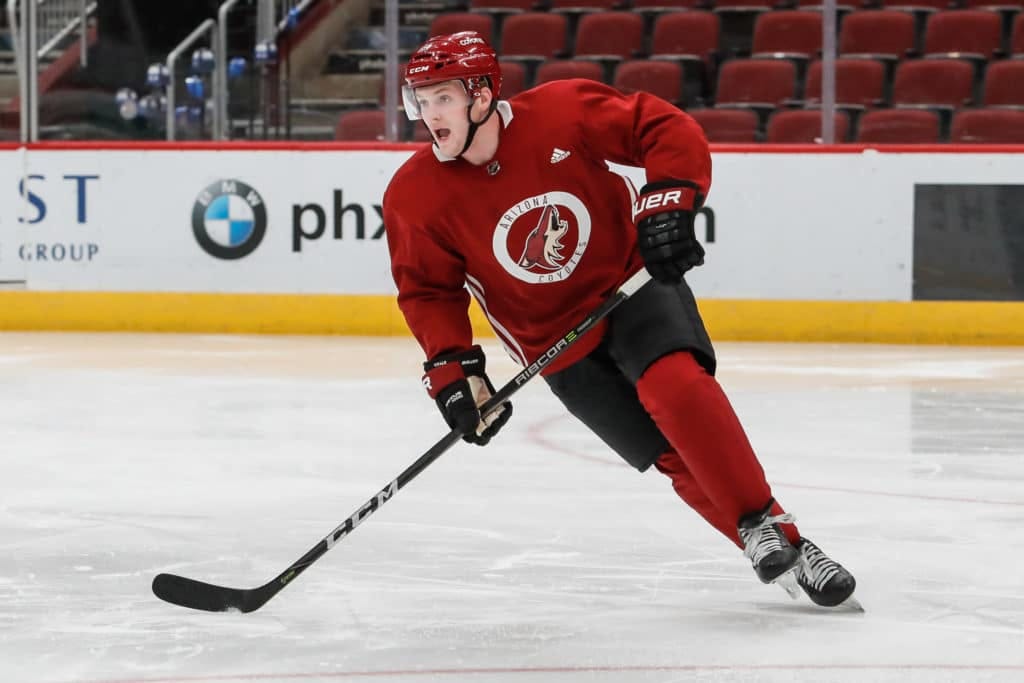


Really enjoyed this. Thanks, Craig. Always look forward to your articles!
Nice job as usual Craig. Why is Söderström playing in Allsvenskan rather than the SHL? Is the SHL shut down because of COVID?